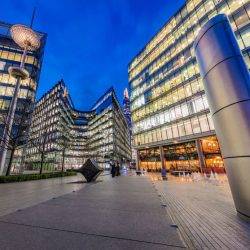September 19, 2018
RICS announces standards to tackle unfair commercial property service charges

New mandatory requirements that will ensure service charges to commercial tenants are transparent, upfront and fair, and that any costs incurred are in accordance with the terms of the occupational leases, have been announced by RICS. The Institute, which has long called for a fairer and more professional approach to property management to help outlaw “rogue” landlords and managing agents says ‘Service charges in commercial property’ will help regulate the activities of landlords and their agents, whilst protecting tenants from having to pay for unscrupulous repair or maintenance costs. It has worked with major property bodies representing owners, occupiers and managing agents – including BPF, BRC, BCO, PMA, CoreNet, REVO, PMA alongside ICAEW and Law Society, the professional bodies for accountants and lawyers – to produce the recommendations that reflect the needs and opinions of landlords and tenants and the specific considerations of different sectors.









 Recent ONS figures showing a rising employment rate could be inflated by the growth of zero-hour contracts within the gig economy, as the number of UK workers on zero hour contracts having more than tripled since 2012. This is propping up overall employment levels by accounting for almost a quarter of overall employment growth, new data by Adzuna has suggested. With the employment rate currently at a record high of 75.7 percent according to the ONS, Adzuna’s data compares recent growth in the number of people in work overall to the increasing number of zero hour contracts, to ascertain how much these contracts have contributed to the growth.
Recent ONS figures showing a rising employment rate could be inflated by the growth of zero-hour contracts within the gig economy, as the number of UK workers on zero hour contracts having more than tripled since 2012. This is propping up overall employment levels by accounting for almost a quarter of overall employment growth, new data by Adzuna has suggested. With the employment rate currently at a record high of 75.7 percent according to the ONS, Adzuna’s data compares recent growth in the number of people in work overall to the increasing number of zero hour contracts, to ascertain how much these contracts have contributed to the growth.














 Total real estate investment in Europe decreased by 8 percent in the second quarter of this year, but there has been strong growth in the offices sector, with volumes totalling €29bn, compared to €24.1bn for the same period last year. Office investment for the first half of the year was also up 11 percent on the same period last year. Furthermore, investment into other areas, including healthcare and student accommodation, remained resilient, with volumes on par with that of last year and 6 percent up on the first half of 2017. Following a more subdued start to the year, the UK posted a strong second quarter. Total investment in Q2 2018 reached €19.9bn, driven by a record quarter for London City office investment. Jonathan Hull, managing director of Investment Properties, EMEA at CBRE commented: “Despite ongoing political uncertainties, the UK remains an attractive destination for European and global capital.”
Total real estate investment in Europe decreased by 8 percent in the second quarter of this year, but there has been strong growth in the offices sector, with volumes totalling €29bn, compared to €24.1bn for the same period last year. Office investment for the first half of the year was also up 11 percent on the same period last year. Furthermore, investment into other areas, including healthcare and student accommodation, remained resilient, with volumes on par with that of last year and 6 percent up on the first half of 2017. Following a more subdued start to the year, the UK posted a strong second quarter. Total investment in Q2 2018 reached €19.9bn, driven by a record quarter for London City office investment. Jonathan Hull, managing director of Investment Properties, EMEA at CBRE commented: “Despite ongoing political uncertainties, the UK remains an attractive destination for European and global capital.”








September 14, 2018
All those workplace trends lists that you see? We’ve been there before 0
by Mark Eltringham • Comment, Facilities management, Furniture, Workplace design
(more…)